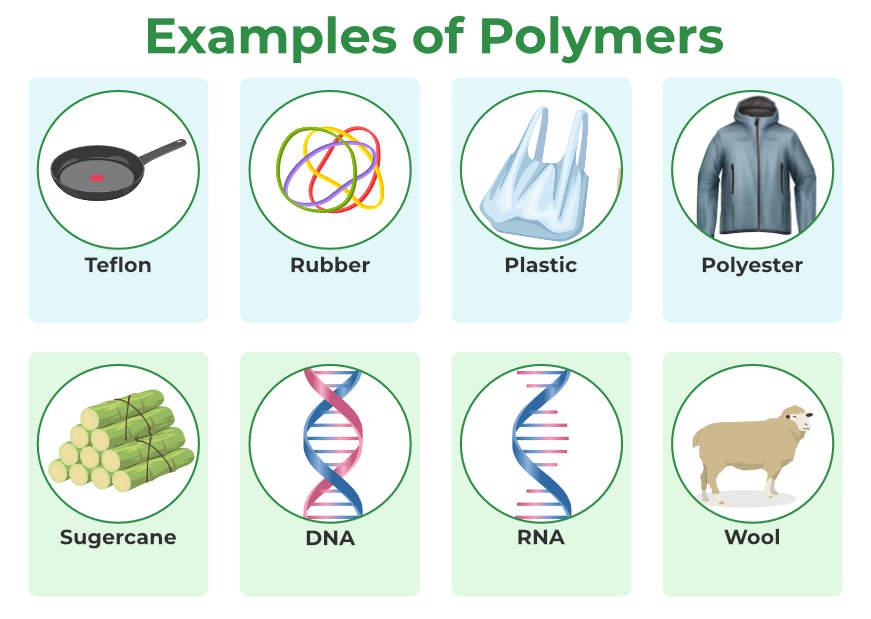Utilizing the Power of Polymers: Recognizing the Substantial Uses and Positive Influences
Polymers, with their varied chemical structures and homes, have come to be crucial in many markets, transforming the way we connect with materials daily. From the product packaging that safeguards our food to the fibers that dress us, the applications of polymers are large and differed. However beyond their common existence lies a much deeper understanding of their positive influences, getting to far past simple benefit. As we discover the comprehensive uses of polymers and their duty in shaping a more lasting, efficient, and cutting-edge future, it becomes noticeable that their capacity is as vast as the particles themselves.
Versatility in Everyday Products
One of the most common uses of polymers is in product packaging products. Furthermore, polymers play an important role in the automotive industry, where they are made use of in manufacturing lightweight components that boost gas effectiveness.
Biodegradable polymers are utilized in sutures and implants, lowering the danger of negative reactions in clients. In the construction sector, polymers are incorporated right into paints, adhesives, and insulation materials, boosting sturdiness and power efficiency.
Sustainability in Product Innovations
With the ongoing focus on ecological consciousness and resource performance, the emphasis moves in the direction of sustainability in material technologies, showing a growing commitment to liable manufacturing practices throughout numerous markets. Recently, there has been a significant rise in the development of sustainable products, particularly within the realm of polymers. These cutting-edge materials are created to minimize environmental influence throughout their whole lifecycle-- from sourcing raw materials to disposal or recycling.
One considerable aspect of sustainability in material advancements is the principle of biodegradability. Biodegradable polymers have gathered interest for their capability to damage down normally right into safe byproducts, decreasing waste and contamination. In addition, making use of recycled polymers originated from post-consumer or post-industrial resources is obtaining grip as a means of promoting a circular economic climate and minimizing dependence on virgin products.

Enhancing Efficiency in Engineering
Enhancing official site efficiency in engineering needs a careful assimilation of innovative modern technologies and specific techniques to optimize functionality and efficiency in various industrial applications. Polymers play an important function in this venture, using a wide range of advantages that boost the efficiency of design products and components.
One key facet of boosting efficiency in design is the capacity of polymers to enhance toughness and stamina. By incorporating polymers into design styles, producers can create light-weight yet robust frameworks that can hold up against high levels of tension and strain. This particular is particularly beneficial in markets such as aerospace, automotive, and building and construction, where the need for strong sites yet lightweight products is critical.
Additionally, polymers can also enhance performance by giving thermal and chemical resistance, decreasing friction, and enhancing electric conductivity. These properties make polymers suitable for a wide array of engineering applications, including seals, bearings, coverings, and digital parts. Polymers. By utilizing the distinct properties of polymers, designers can optimize the performance of their styles and Read Full Article produce a lot more reliable and dependable items
Influence On Clinical Advancements
Polymers have actually played a crucial role in contemporary clinical improvements, varying from medicine distribution systems to cells design. One of the vital locations where polymers have actually made a significant influence is in the development of eco-friendly sutures and implants.
Furthermore, polymer-based materials are increasingly being used in medical devices such as catheters, stents, and prosthetics due to their biocompatibility and versatility. As an example, polymer finishings on medical devices can avoid infections and improve overall patient outcomes. In addition, advancements in nanomedicine have allowed the use of polymer nanoparticles for targeted drug distribution, improving the effectiveness and reducing adverse effects of different medicines
Duty in Environmental Preservation

Furthermore, polymers are made use of in water therapy processes, assisting in the purification and recycling of water resources. This assists in minimizing water contamination and guaranteeing accessibility to clean water for both human consumption and ecological wellness. Polymers likewise contribute in farming through the growth of naturally degradable composts and controlled-release plant foods, promoting lasting farming methods.
Conclusion
To conclude, polymers have confirmed to be a flexible and important product in different sectors, from daily products to design and medical improvements. Their effect on sustainability, efficiency improvement, and environmental conservation is significant. Comprehending the considerable uses polymers emphasizes their significance in driving innovation and progression in several areas. The ongoing exploration and use of polymers will most certainly lead to additional innovations and favorable impacts on society.